Raincoats are unique representatives of the Champignon family. There are many edible and inedible varieties of this fungus. All of them have a closed sporocarp of a round or pear-shaped shape. Edible mushroom raincoat has a number of useful properties, and also has anti-blastoma and antimicrobial effects.
Content
Characteristics of Raincoats
The genus Raincoats includes about 10 varieties, most of which are edible. The mature sporocarp of these fungi burst and release spores into the environment. Because of this property, mushroom pickers call them pyrchids, dust collectors, grandfather or wolf tobacco, damn tawlins, smokers, and golovachs.
Appearance and photo
Smokers have a closed rounded or pear-shaped. As can be seen in the photo, they are small in size, with a pronounced false leg and exoperidium covered with spiky outgrowths. Over time, outgrowths fall out, and sporocarps open and release spore powder of a saturated yellow-green or brown color.
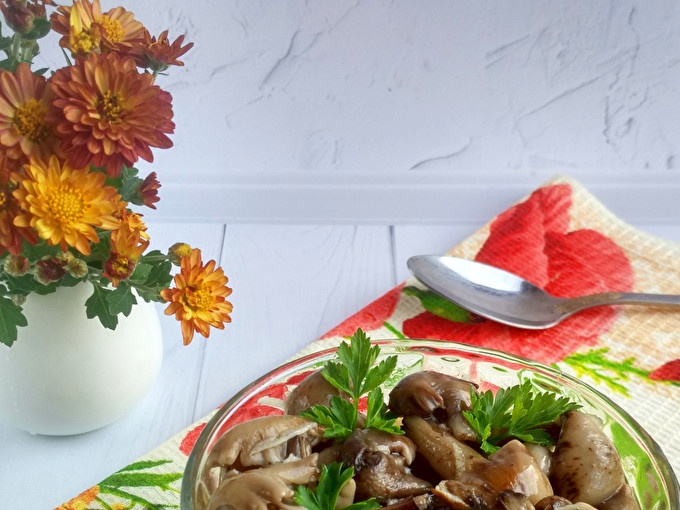 You may be interested in:
You may be interested in:Edible or inedible
Some varieties of dust are not only edible, but also very useful. The edibility of the fungus can be determined by its external features.
Eat only unripe fruiting bodies, the inner layer of which is dense, tight and uniform. In addition, the pulp should be white, if it has a zinc yellow or green hue, then such a dust maker is not edible.
Rules and Venues
Grandfather's tobacco can be found all over the world, with the exception of the cold territories of Antarctica. Dust covers are also widespread in Russia. They grow in coniferous and deciduous forests, parks, on plains, fields, agricultural land and manicured lawns. Harvest time falls mainly at the end of summer - the beginning of autumn. Most often they appear after a good rain.
In order to avoid poisoning, collecting powder flasks is far from the roads. When harvesting, it is important to ensure that all fruiting bodies on the slices are white, not yellow or green. With each fungus, it is necessary to cut off the pseudopod.
The main differences from false, inedible mushrooms
There are several types of inedible false raincoats. These include the following:
- warty;
- ordinary;
- spotted.
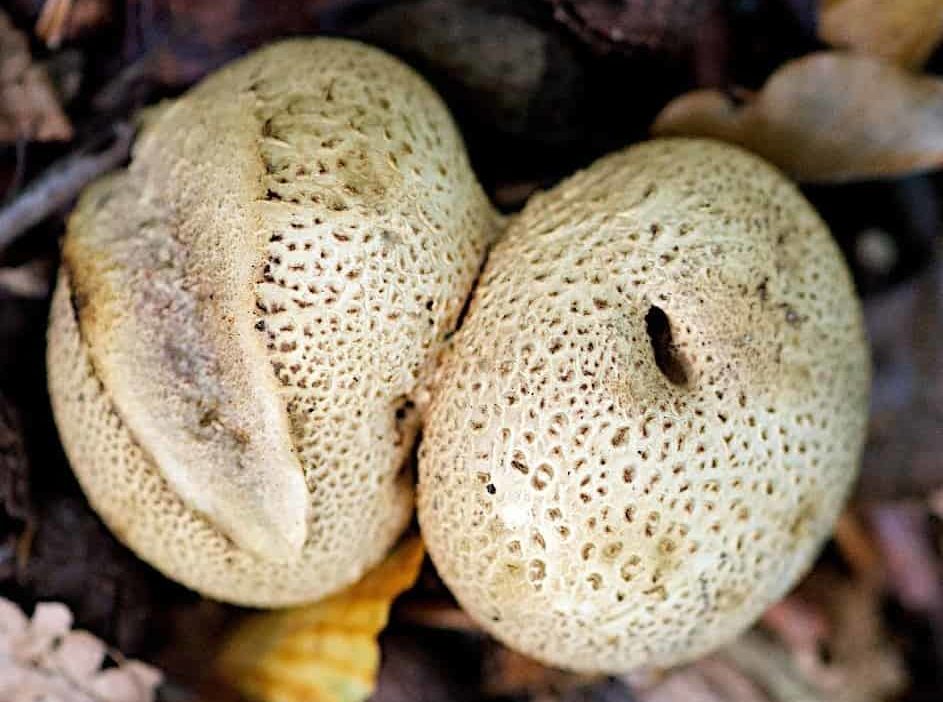
All these mushrooms have a number of distinctive features. First of all, to distinguish an edible raincoat from a poisonous one, you need to pay attention to how it smells. A real raincoat does not have a pronounced unpleasant odor. The innards of a good mushroom are soft but resilient; white, sometimes with very thin yellow veins.
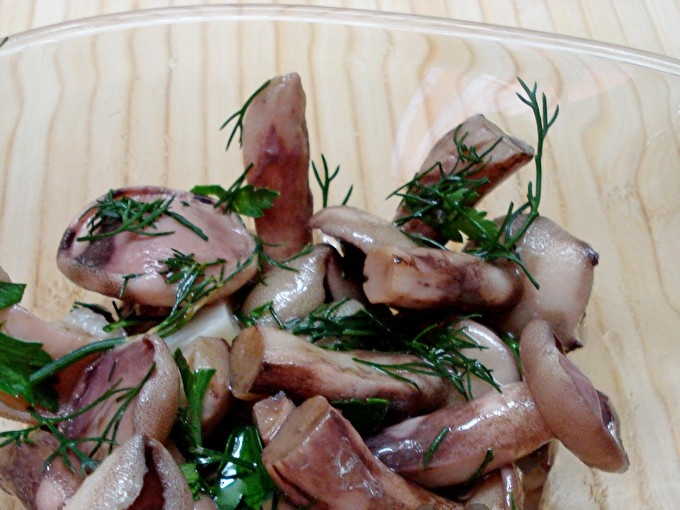 You may be interested in:
You may be interested in:In false raincoats, the inner layer is dense to the touch, it darkens very quickly in the section. Young scleroderma do not have spines characteristic of the edible species; they are always smooth, smoky white or yellowish. Over time, poisonous species become covered with cracks, growths or ocher-colored plates. After maturation, the sporocarp bursts, but the spores do not fly out. For a long time they are inside a torn mushroom.

The main feature of scleroderma is a rough leathery exoperidium and a blue-violet color of a ripened inner layer that emits a smell of raw potatoes. At the beginning of ripening, the inner part of the fruit body of pseudo-raincoats remains elastic for a long time, while in real ones it quickly becomes soft after darkening. The appearance of the false mushroom can be seen in the photo.
Useful nutritional properties and restrictions on the use
Dust masks are very much appreciated in traditional medicine. They are able to absorb heavy metals, radioactive substances, fluorides, chlorides and remove them from the human body in a natural way. In addition, they prevent the development of cancerous tumors.
Edible raincoats that grow away from motorways and industrial plants are not harmful to health. However, children and adolescents, women during lactation and pregnancy, people in advanced old age should refrain from their use. In addition, dust collectors are difficult to digest, therefore, people with diseases of the gastrointestinal tract and kidneys should consume them in limited quantities.
Cooking features
The raincoat has a rather specific taste, so you need to be able to cook it correctly. There are many recipes for making a dust maker: in batter, breadcrumbs, stewed in cream or fried with onions in a pan.
Proper preparation for eating
Mushroom preparation includes three main points:
- First of all, freshly picked fruiting bodies must be thoroughly washed from dirt.
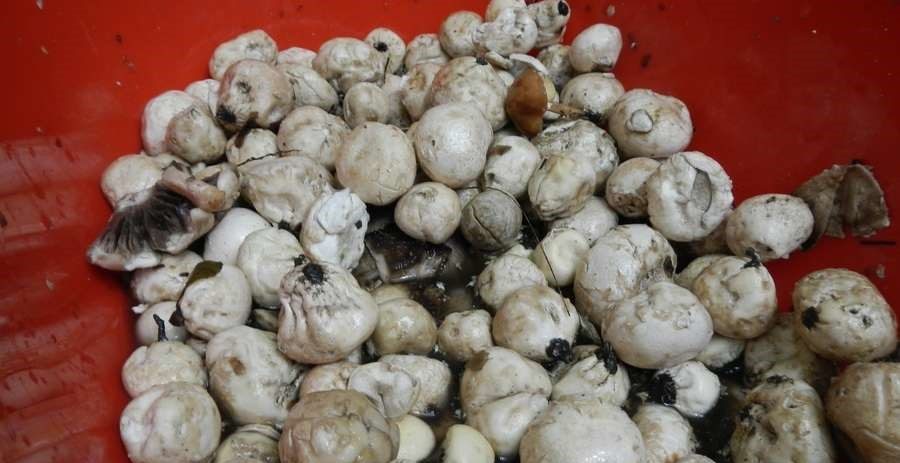
Mushroom preparation - Since the skin of the raincoat is quite tough, it must be removed.
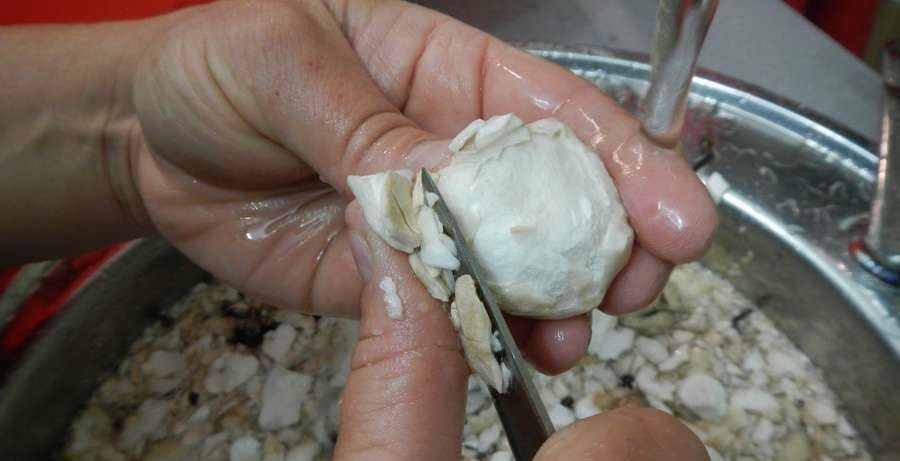
Peeling - Prepared mushrooms must be boiled in salted water for 25-30 minutes.
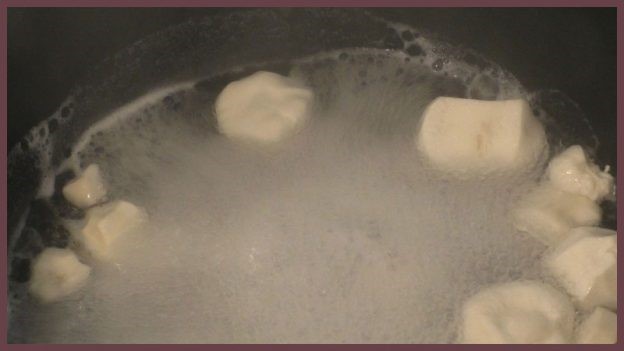
Cooking process
The last step is not necessary, however, many housewives consider it necessary to subject the mushrooms to additional heat treatment. Having prepared the raincoats, you can start cooking.
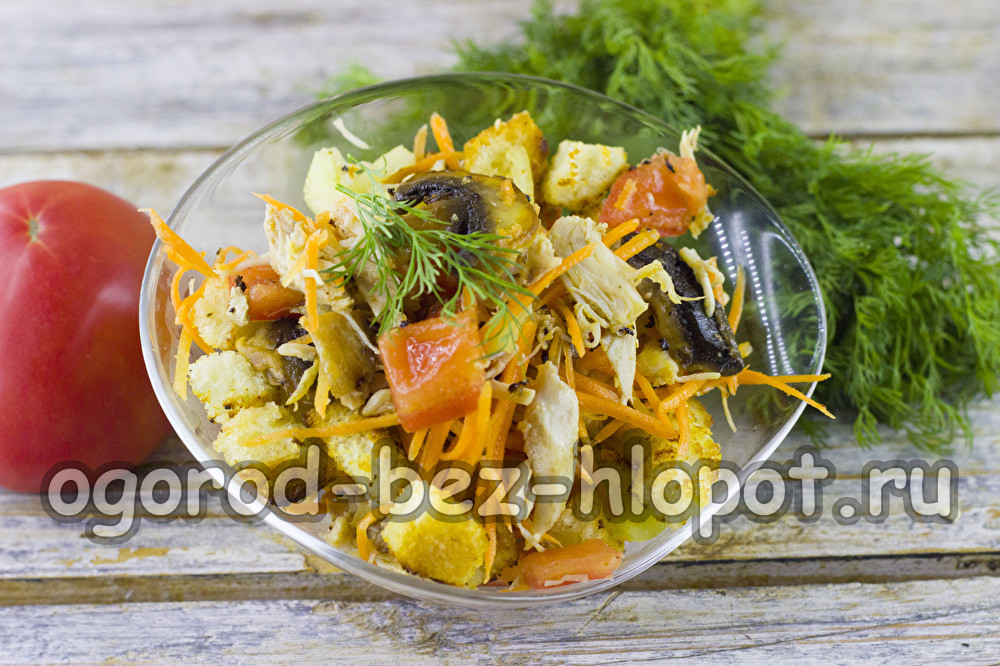 You may be interested in:
You may be interested in:Recipes
There are many different recipes for cooking golovach. Most of them are very simple, not requiring special skills, but at the same time very tasty:
- Dust collectors with sour cream are a tasty and healthy dish consisting of simple ingredients. In order to prepare a dish, you will need:
- 0.5 kg of raincoats;
- a glass of sour cream;
- 2 onions;
- 100 ml of sunflower oil;
- salt and pepper. Prepared mushrooms, you need to fry in oil for 20-25 minutes. Separately, pass onion diced until golden. Add the onions to the mushrooms and cook another 20-25 minutes. 5 minutes before the end of the passivation, add sour cream and spices.
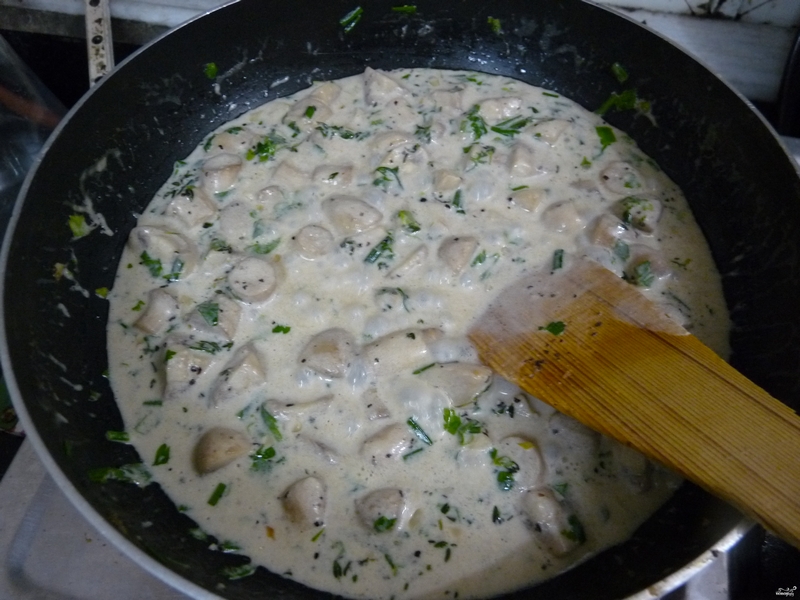
Raincoats in sour cream
- Oven-baked raincoats are a mouth-watering snack that is not difficult to cook. For this recipe you need:
- 1 kg of powder;
- 100 g mayonnaise;
- 3 g of salt;
- greens and spices.
All ingredients must be thoroughly mixed and marinated for an hour. Then transfer the mushrooms to the baking sleeve and send to the oven preheated to 200 degrees for 60 minutes. Sprinkle the finished dish with herbs.
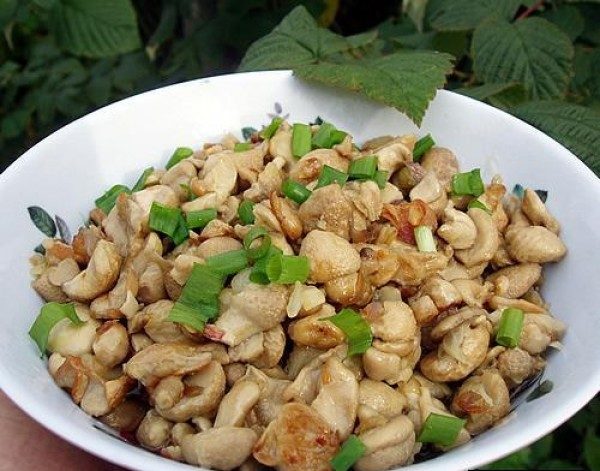
Oven-Baked Raincoats - Freshly picked smokers can make fragrant soup with dumplings. For him it is necessary:
- 300 g of raincoats;
- 4 potatoes;
- 1 onion;
- a bunch of greenery;
- salt, sunflower oil.
For dummies:
- a glass of flour;
- 80 g of butter;
- 2 eggs;
- glass of water;
- salt.
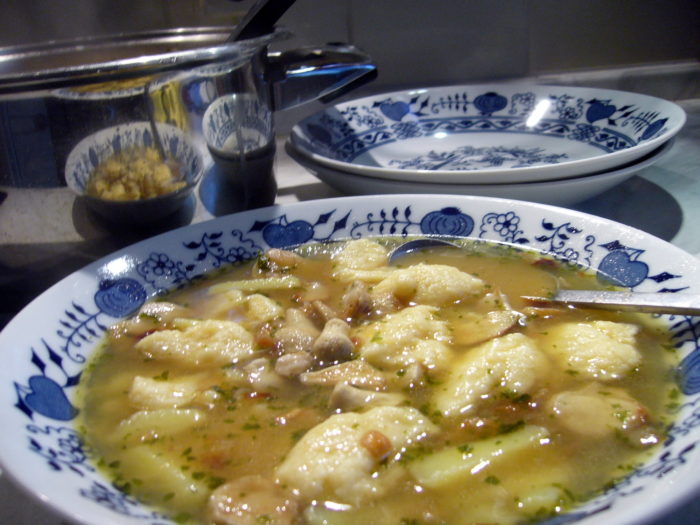
Raincoat and Dumpling Soup
The first step is to put the potatoes to boil for 20 minutes. At this time, chopped mushrooms and onions should be fried in oil. Then in a separate bowl, bring to a boil water with butter and a pinch of salt.
Remove it from the heat and, stirring quickly, add flour. Add eggs one at a time. Throw mushrooms in the soup and, with the help of a teaspoon, put the dough for dumplings in small portions. Let it boil for 5 minutes. Then add greens, mix and remove from heat. You can immediately serve.
All these recipes are simple and affordable, however, thanks to raincoats they have a unique taste and aroma.
Harvesting for the winter
To keep the flakes for the winter, you can dry or pickle them. In order to dry the mushrooms, it is necessary to peel them, cut and boil. After this, prepared dusters should be laid out on a baking sheet in one layer. Raincoats can be dried in the sun or in the oven at a temperature of no higher than 100 degrees. To pickle mushrooms, you need to prepare the following ingredients:
- raincoats - 1 kg;
- sugar and salt - 10 g each;
- vinegar - 75 ml;
- dill umbrellas - 2-3 pieces;
- garlic - 2 cloves;
- allspice - 6 peas.
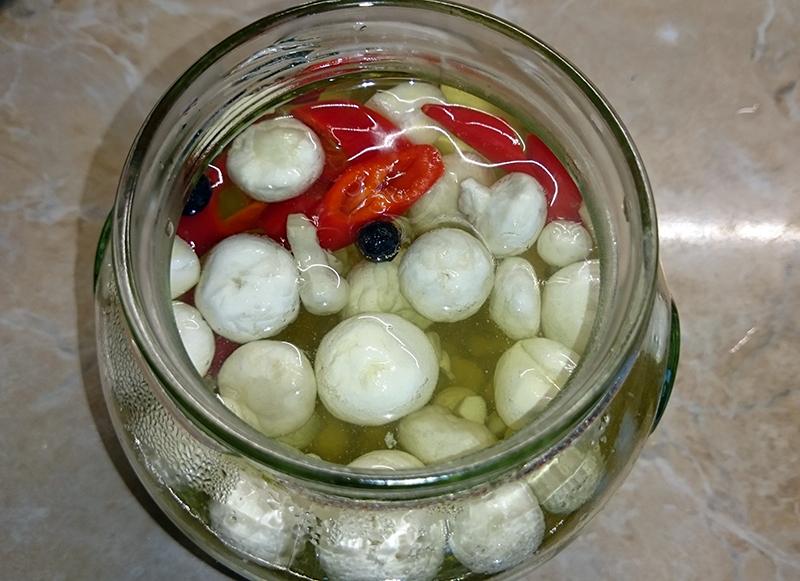
Purified flasks must be boiled in salted water for several minutes. Then you need to add all the other ingredients and boil for another quarter hour. Put dust bags on the banks and pour the marinade, cork with lids. The next day, the banks must be taken out to the basement.
Answers to Common Questions
Raincoats are very peculiar mushrooms. Many people do not consider them edible at all. Others know about their beneficial properties, but are not sure that they can be cooked properly. In this regard, many questions arise about dust collectors:
Raincoats are tasty and healthy mushrooms. However, it is important to be able to distinguish between edible and poisonous species. Properly selected and prepared golovach will become a real decoration of any table.

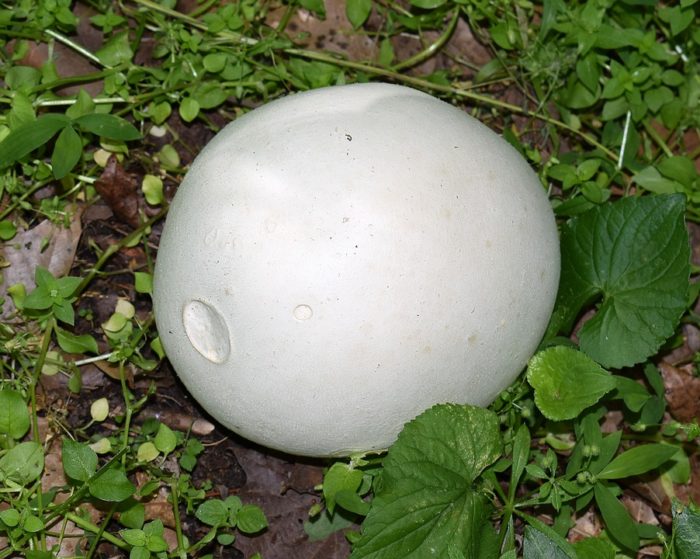
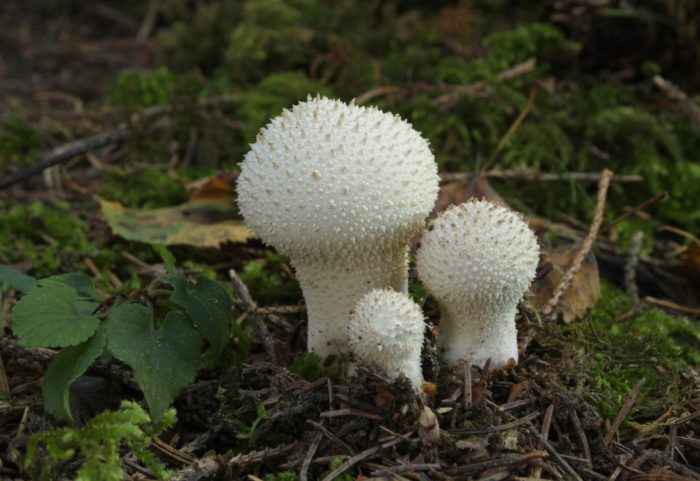
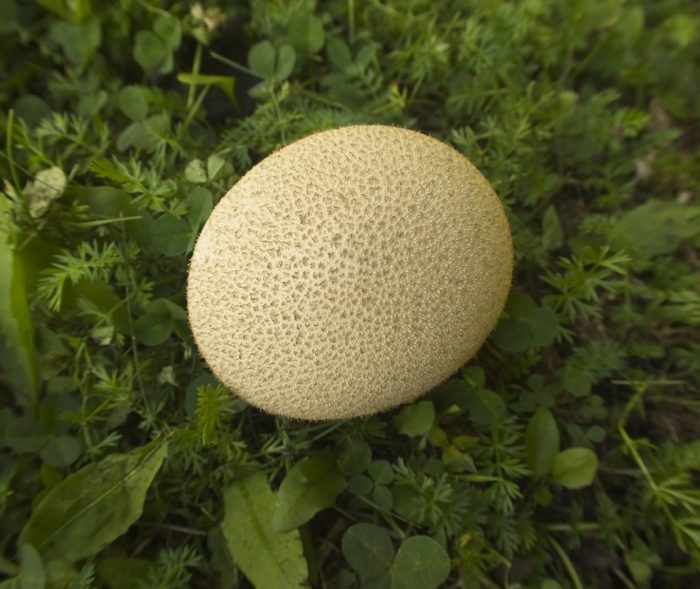
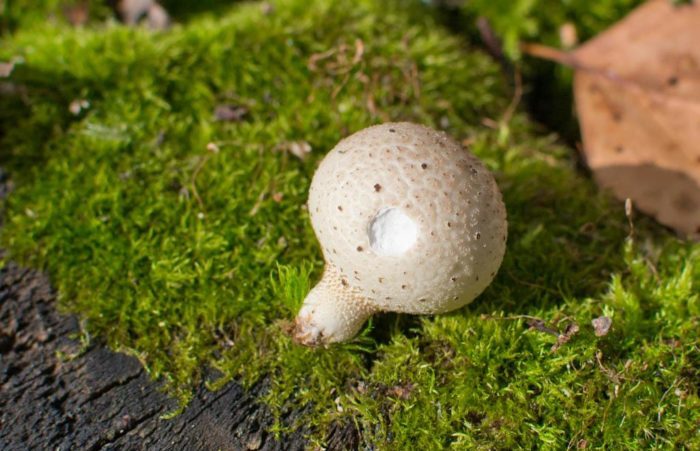
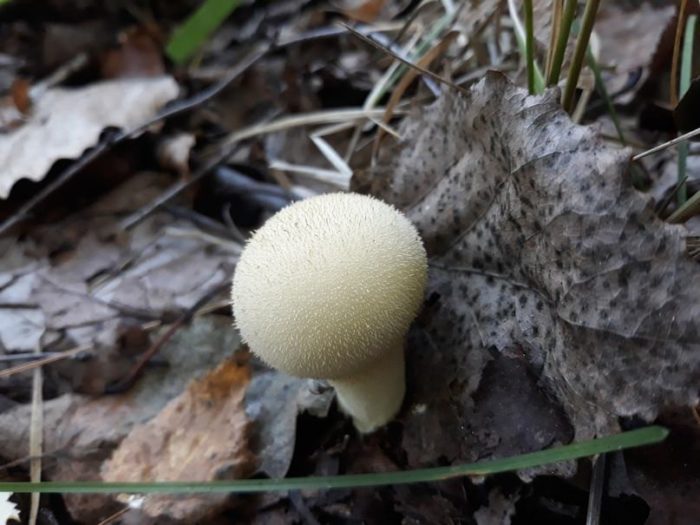
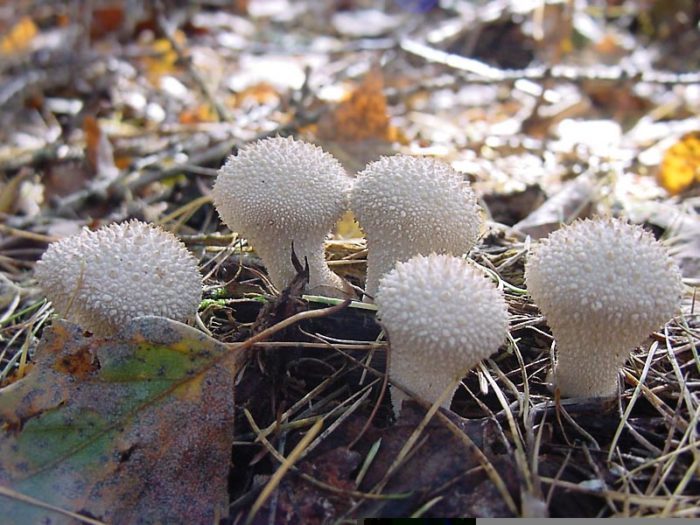
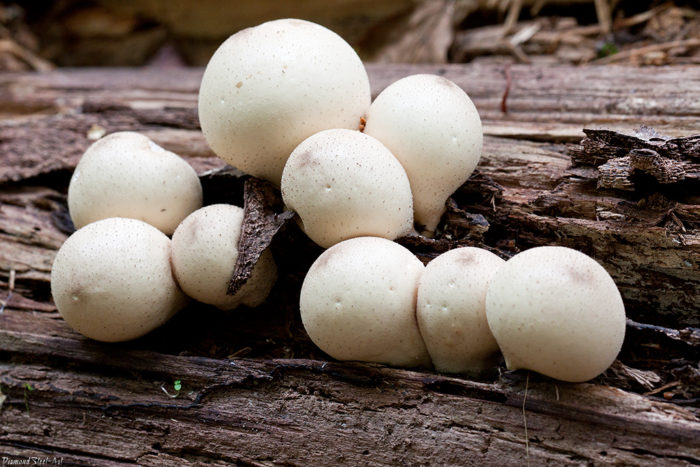
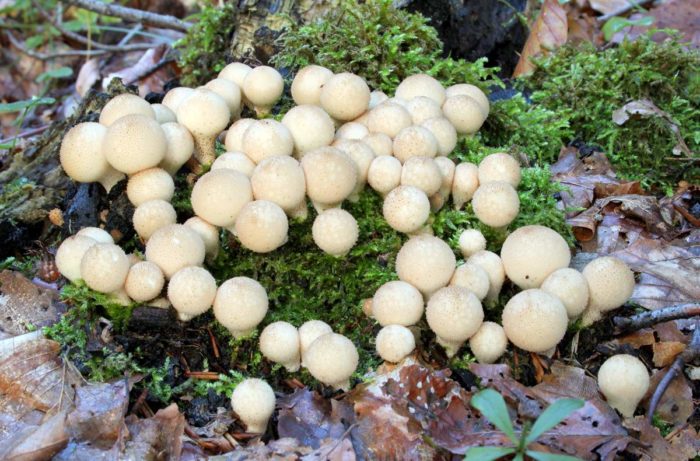
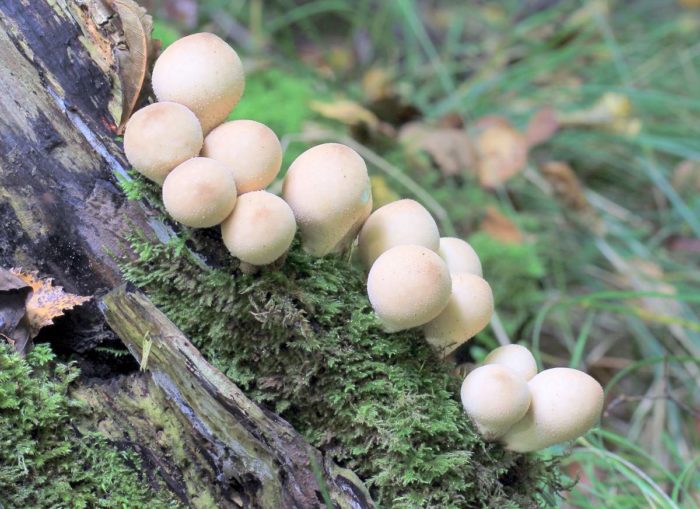
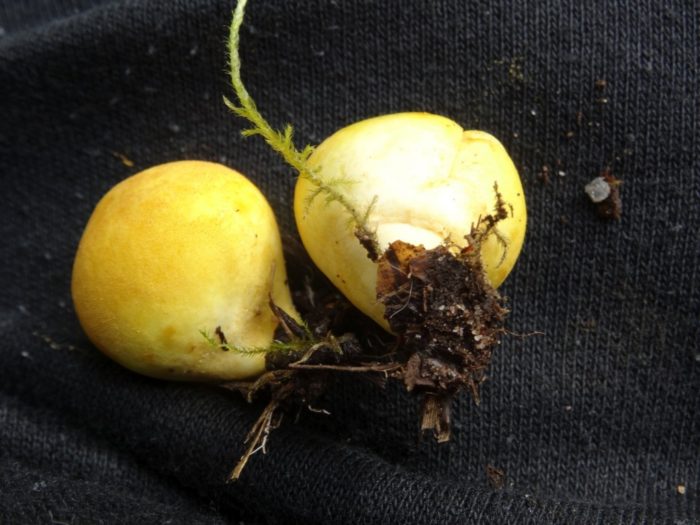
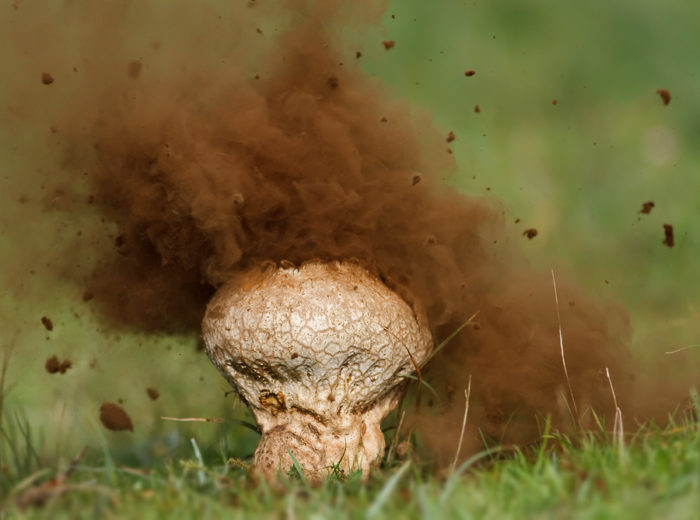
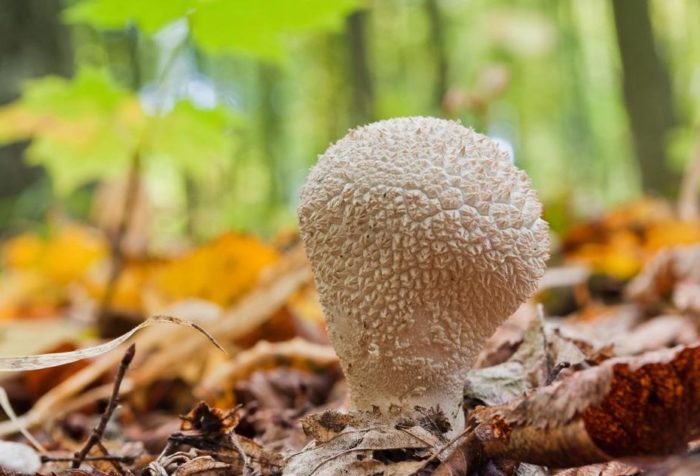
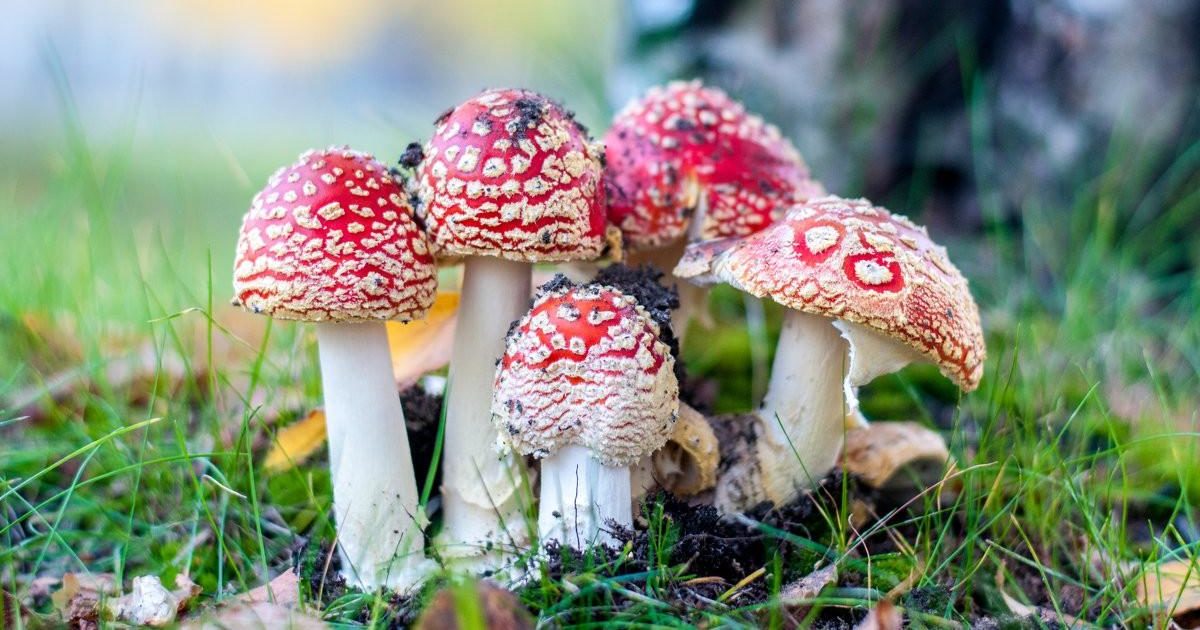
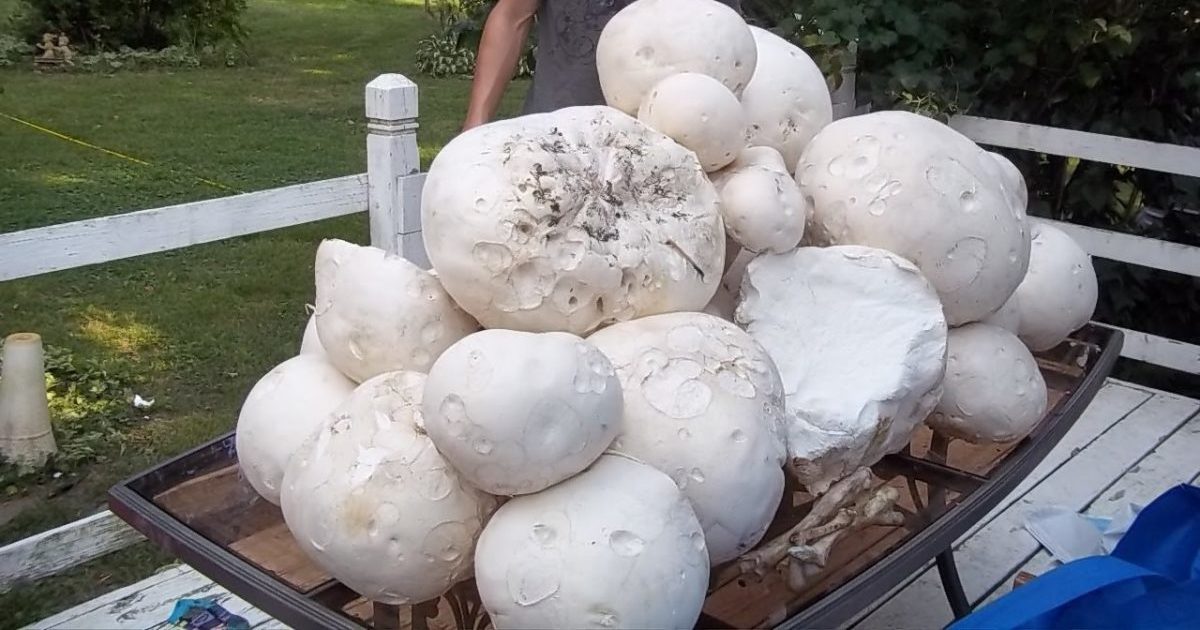
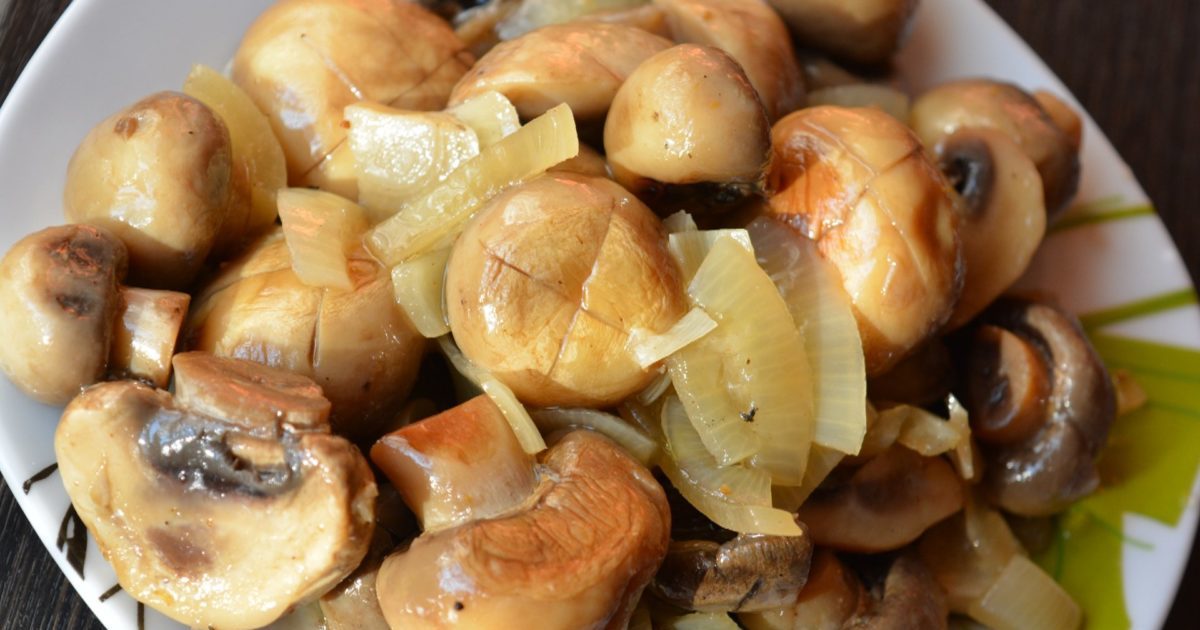
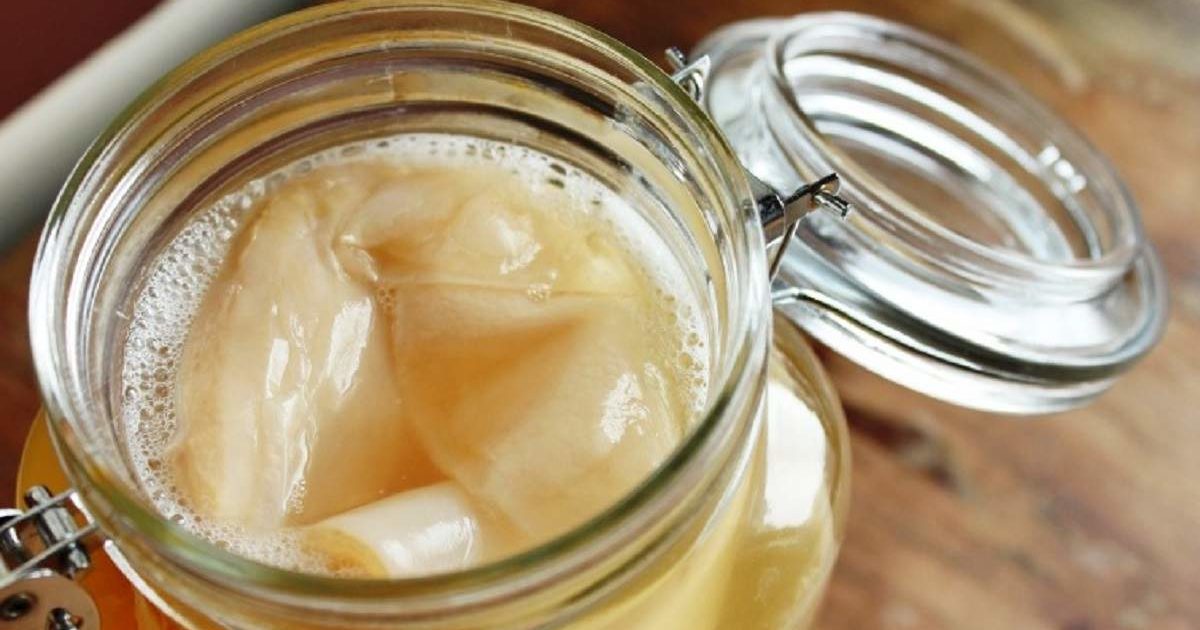 Care and use of Kombucha at home (+22 photo)
Care and use of Kombucha at home (+22 photo)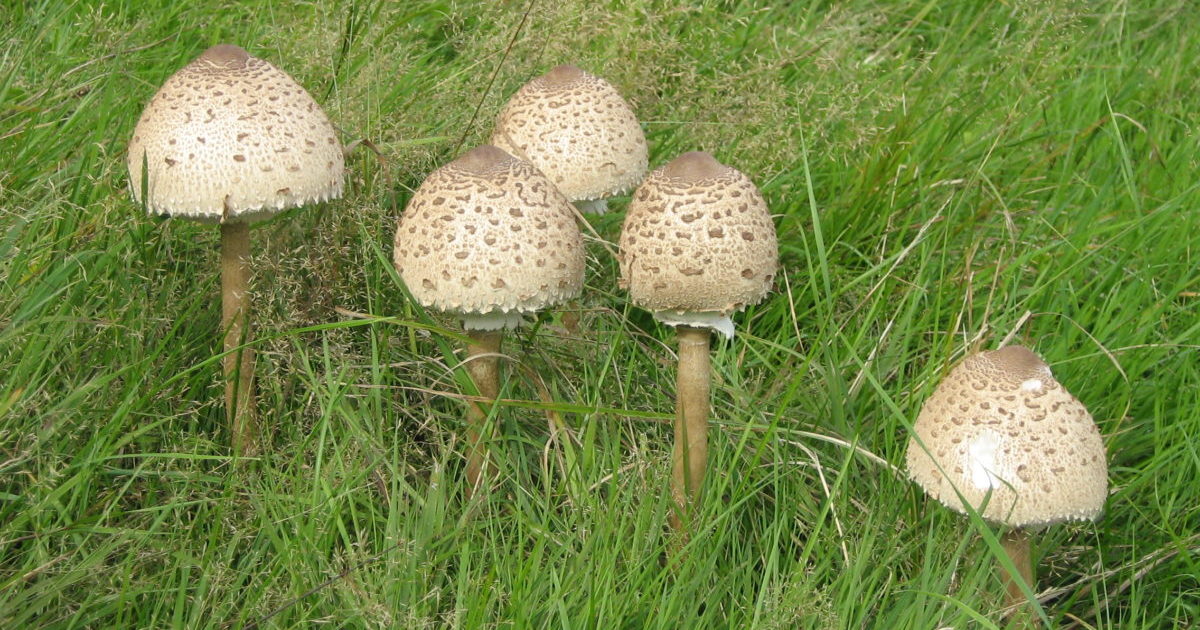 Edibility of the fungus of the motley umbrella and its description (+19 photo)
Edibility of the fungus of the motley umbrella and its description (+19 photo)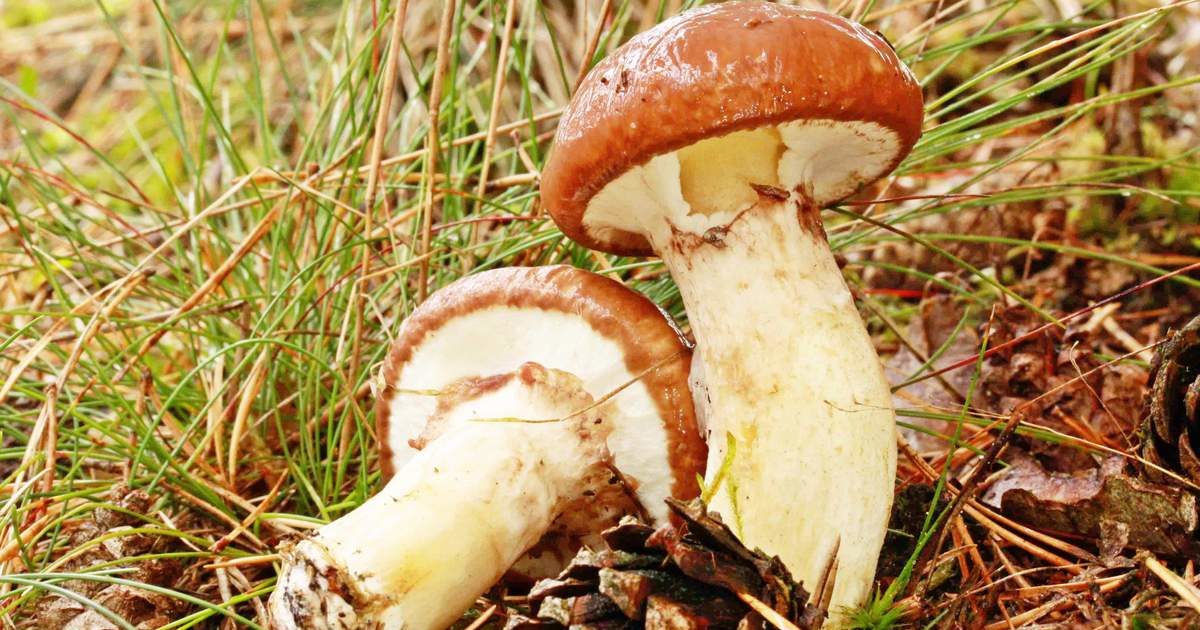 Description of edible and inedible oils, their poisonous counterparts (+40 photos)
Description of edible and inedible oils, their poisonous counterparts (+40 photos)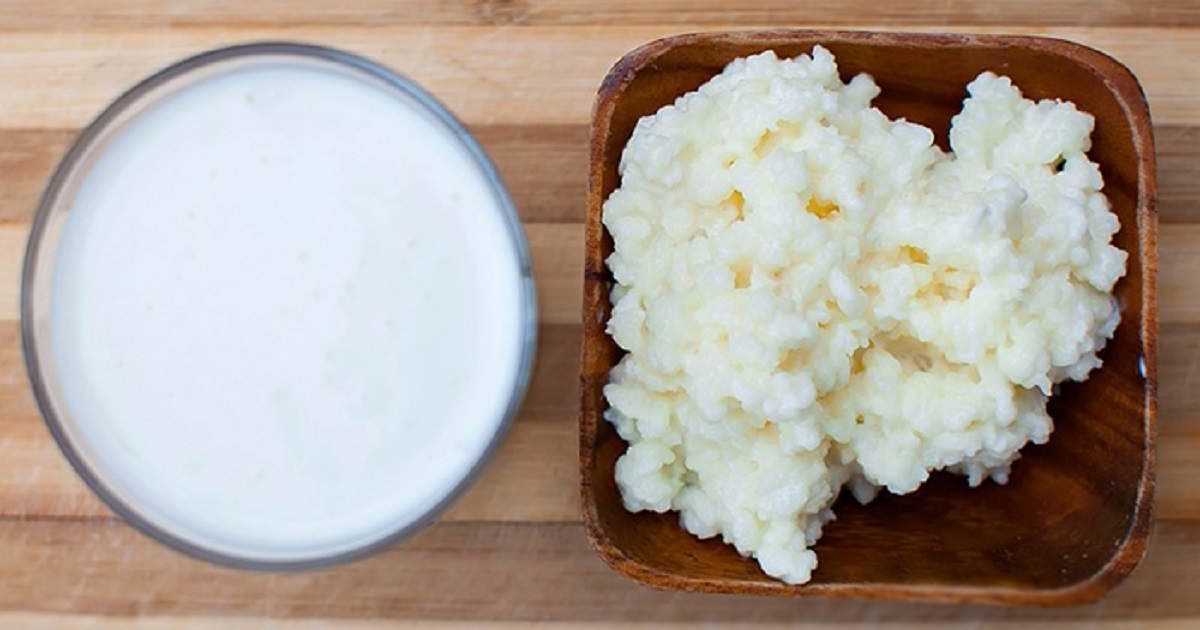 Useful properties of milk mushroom and its contraindications (+17 photos)
Useful properties of milk mushroom and its contraindications (+17 photos)
Andrei
you might think, there are no other mushrooms. what for collect what you can not eat at all?
Sidor Petrovich
Andrey, are you stupid? And if there are no others?
Tatyana
very interesting
Margaritatak
So really did not show which raincoat is edible, and which is not